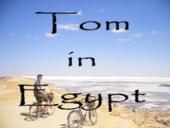I like reading. Slowly, deliberately, thoughtfully. Fiction, more often than not, although that's something that is steadily changing as I learn to greater appreciate the subtleties of travel writing and memoir.
Last summer in Tucson, during one of my many visits to the Aladdin's cave of used books and CDs that is Bookman's whilst waiting for Andrea to finish her physiotherapist appointment, I picked up a lightly thumbed copy of a novel entitled Snow. I noted the author's name, vaguely recognising Orhan Pamuk as a recent Nobel laureate and recalling a story I'd read about a legal case against him in Turkey over remarks made about the Armenian genocide. I decided to take the plunge; a Nobel prize winner must be worthy of my attention, and if it turned out to be trash - or, more probable, elevated to the point of unintelligibility (I love Neruda on this, and his idea of a "fetish of the incomprehensible" ) - then I'd only lost out on 10 dollars, and could probably recoup most of that by selling it back.
I don't want to review Snow here, not now anyway. Margaret Atwood does an excellent job of that here, for the New York Times. It suffices to say that I found it mysteriously enchanting, and the early chapter written as a dialogue between a university professor and his soon-to-be assassin is a tour de force. More than once I have considered copying it in full on here, but it's no short chapter and I don't want any legal trouble.
Perhaps the best thing about reading Snow was that it led me to read more by Pamuk. On my return to the US in the Spring, I picked up a collection of essays and short writings: Other Colors: Essays and a Short Story, and in my most recent visit to Pakistan I grabbed Istanbul. It is in these two remarkable books that the author discusses his true loves: books, childhood and Istanbul. With a beautiful innocence and a refreshing honesty, Pamuk depicts his childhood in Istanbul, as the younger son of an upper middle class, once wealthy family, interweaving the influences of social class, religion, Westernization, melancholy, the Bosphorous, the Ottoman empire and Isntabul's sense of a forever lost greatness on his own experience and maturity as a writer. His memoirs and musings about counting ships on the Bosphorous, his mother, and his relationship with his daughter are particularly touching, melancholic and at times comical.
What I love most, though, about Pamuk's writing is that he seems to spark a desire in me to write that no author I can think of has before. It's hard for me to put my finger on exactly why that is the case, but his evocative depictions of Istanbul leave me wanting to spend hours sitting, thinking, jotting notes and eventually composing something vaguely coherent. In many ways it makes me jealous of the obvious talent, and superlative location, of SoD up in Alexandria. Sadly, the reality is that I lack the self-discipline, training and financial muscle to be able to spend extended periods of time pen in hand. At most times, I must confess, I also lack the desire. As I re-read the short entries that make up Istanbul and Other Colors, though, it's difficult to want to do much else. Maybe one day.
I shall leave you with a short extract on writing from the moving Nobel speech given by Pamuk, also published in Other Colors:
"A writer is someone who spends years patiently trying to discover the second being inside him, and the world that makes him who he is: when I speak of writing, what comes first to my mind is not a novel, a poem, or literary tradition, it is a person who shuts himself up in a room, sits down at a table, and alone, turns inward; amid its shadows, he builds a new world with words. This man – or this woman – may use a typewriter, profit from the ease of a computer, or write with a pen on paper, as I have done for 30 years. As he writes, he can drink tea or coffee, or smoke cigarettes. From time to time he may rise from his table to look out through the window at the children playing in the street, and, if he is lucky, at trees and a view, or he can gaze out at a black wall. He can write poems, plays, or novels, as I do. All these differences come after the crucial task of sitting down at the table and patiently turning inwards. To write is to turn this inward gaze into words, to study the world into which that person passes when he retires into himself, and to do so with patience, obstinacy, and joy. As I sit at my table, for days, months, years, slowly adding new words to the empty page, I feel as if I am creating a new world, as if I am bringing into being that other person inside me, in the same way someone might build a bridge or a dome, stone by stone. The stones we writers use are words. As we hold them in our hands, sensing the ways in which each of them is connected to the others, looking at them sometimes from afar, sometimes almost caressing them with our fingers and the tips of our pens, weighing them, moving them around, year in and year out, patiently and hopefully, we create new worlds."
Labels: books, Istanbul, literature, Nobel, Orhan Pamuk, Snow, Turkey, writing
1 Comment:
-
- Aala said...
30 December 2009 at 20:01Funny enough I too was given a second hand book by Pamuk called My Name is Red: incidentally i just lent it to Noa and its great so far, about the murder of an artist.



